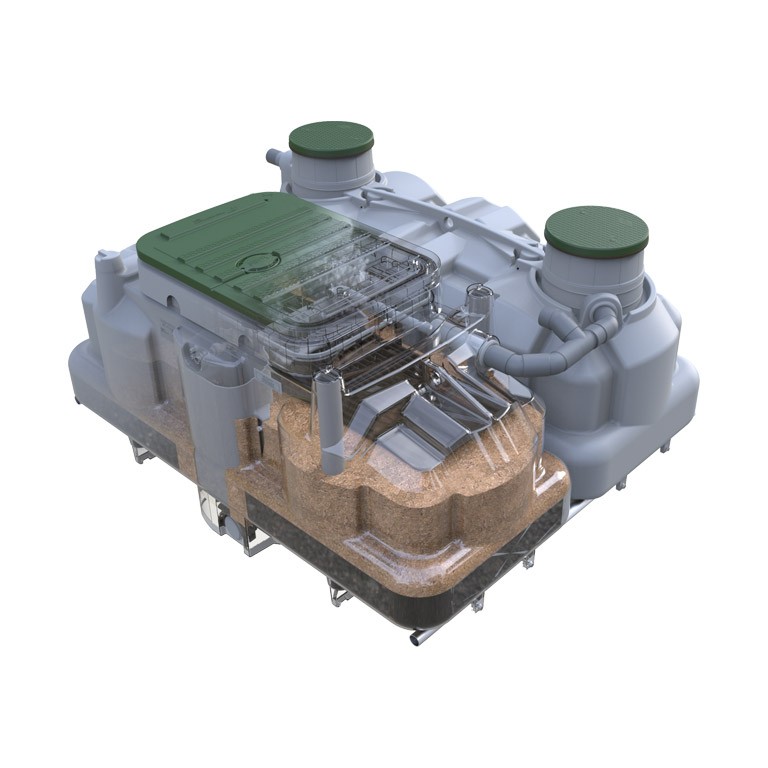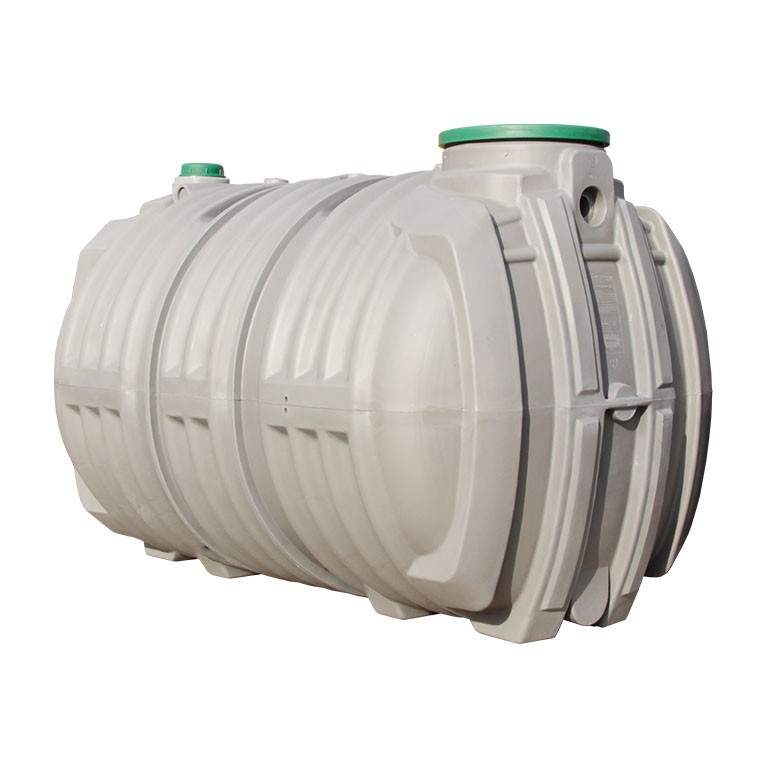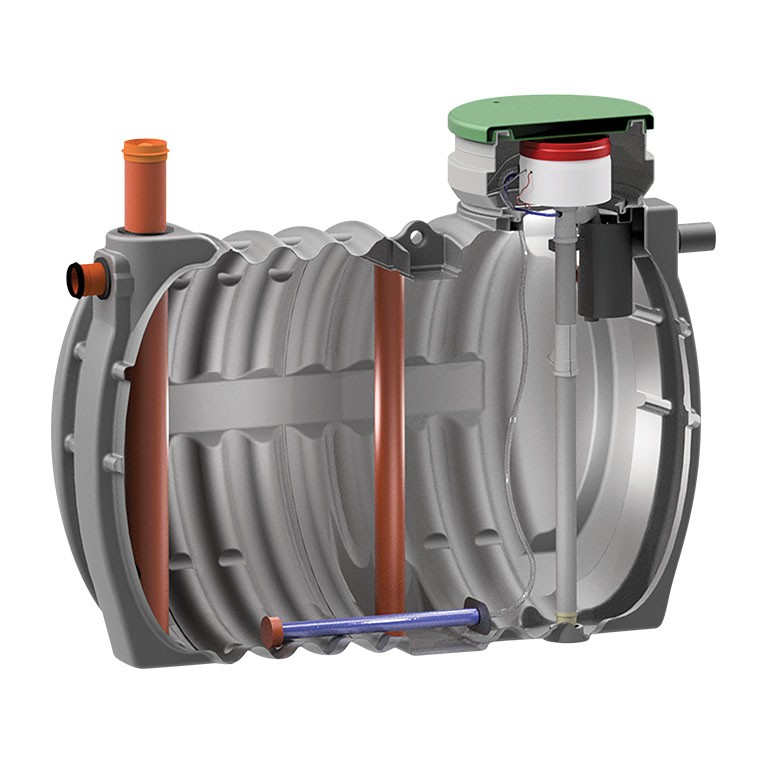Ecoflo biofilter certifications in North America

We measure the performance and durability of our Ecoflo biofilter in more than words. We back it with testing results from independent and impartial septic certification bodies in Canada and the United States.
These organisations rigorously tested our sustainable septic system in real-world conditions for up to a year. Like us, their goal was to ensure our technology meets strict standards that protect properties, public health, and the environment.
The Ecoflo biofilter outperformed even the most stringent requirements, which is why we proudly market it with several certification logos — symbols recognised by regulators and trusted by septic system professionals across North America.
How to read our test results
Before we dig deeper into Ecoflo septic system certifications, let’s decode some industry terms and abbreviations so you can fully understand our test results.
Biochemical oxygen demand (BOD5)
BOD5 is an indirect measure of biodegradable pollutants in wastewater. It describes the quantity of dissolved oxygen that microorganisms consume when they break down organic matter in a wastewater sample over a five-day period.
Total suspended solids (TSS)
TSS is a measure of undissolved particles in wastewater. It refers to the weight of all suspended solids in a wastewater sample after they have been trapped by a filter and allowed to dry.
Fecal coliforms
Fecal coliforms are bacteria that originate in the intestines of warm-blooded animals, including humans. For wastewater, the concentration of fecal coliforms is determined by filtering a sample, growing the retained bacteria on a culture medium, and then counting the number of colony forming units (CFUs) per 100 mL.
pH
pH is a measure of acidity or basicity. The pH scale ranges from 0 to 14, where 0 is very acidic, 7 is neutral, and 14 is very basic. For wastewater, normal pH values range between 6.5 and 9.
BNQ certification standard NQ 3680‑910
The Bureau de Normalisation du Québec (BNQ) is a certification body accredited by the Standards Council of Canada and fully compliant with the processes and ethical practices of the International Organization for Standardization.
The BNQ developed standard NQ 3680‑910 to establish performance requirements for on-site wastewater treatment systems for isolated dwellings in Québec.
Systems certified with this standard must successfully complete a 12-month test that includes several stresses, including periods of non-use and power outages. The goal is to measure reliability throughout Québec’s four-season climate and conformity to local rules and regulations.
Class III: Advanced secondary treatment
These test results show the average treatment performance of our Ecoflo biofilter.
| Parameter | Requirement1 | Ecoflo Effluent |
| 100% Coco Filtering Medium2 | ||
| BOD5 | ≤ 15 mg/L | 2 mg/L |
| TSS | ≤ 15 mg/L | 2 mg/L |
| Fecal coliforms | ≤ 50 000 CFU/100 ml | 350 CFU/100 ml |
1. 30-day average.
2. As per system certification, installation includes a Premier Tech compact sand filter.
Class V: Tertiary treatment with disinfection
These test results show the average treatment performance of our Ecoflo biofilter when combined with Rewatec UV disinfection (not available in Europe).
| Parameter | Requirement1 | Ecoflo with UV Disinfection Effluent |
| 100% Coco Filtering Medium2 | ||
| BOD5 | ≤ 15 mg/L | 4 mg/L |
| TSS | ≤ 15 mg/L | 4 mg/L |
| Fecal coliforms | ≤ 20 CFU/100 ml | 2 CFU/100 ml |
1. 30-day average.
2. Before photoreactivation.
And these results, also under Class V for tertiary treatment with disinfection, show the average treatment performance of our Ecoflo biofilter when combined with our Rewatec passive disinfection filter (not available in Europe).
| Parameter | Requirement1 | Ecoflo with Disinfection Filter Effluent |
| 100% Coco Filtering Medium | ||
| BOD5 | ≤ 15 mg/L | 2 mg/L |
| TSS | ≤ 15 mg/L | 1 mg/L |
| Fecal coliforms | ≤ 200 CFU/100 ml | 3 CFU/100 ml |
1. 30-day average.
CAN/BNQ certification standard 3680‑600
The BNQ developed CAN/BNQ standard 3680‑600 to establish performance requirements for on-site wastewater treatment systems for isolated dwellings across Canada.
Systems certified with this standard must successfully complete a 12-month test that includes stresses, such as periods of non-use and power outages. The first six months of the test involve frequent samplings, while the remaining six months measure reliability throughout Canada’s four-season climate.
These test results show the treatment performance of our Ecoflo biofilter in two different configurations: demand dose, where wastewater freely enters the system without flow regulation, and timed dose, where wastewater enters the system via a pump that runs at predetermined intervals.
| Parameter | Class B-IV Requirement1 | Ecoflo Effluent2 | |
| Demand Dose | Timed Dose | ||
| BOD5 | ≤ 10 mg/L | 3 mg/L | 4 mg/L |
| TSS | ≤ 10 mg/L | 4 mg/L | 4 mg/L |
| Fecal coliforms | No requirement | — | — |
1. 30-day average.
2. With coco and peat filtering medium.
NSF/ANSI standard 40 and 245
The National Sanitation Foundation (NSF) is a certification body in the United States. It is accredited by the American National Standards Institute (ANSI), the Occupational Safety and Health Administration, and the Standards Council of Canada. Like the BNQ, the processes and ethical practices of the NSF are fully compliant with international standards.
Standard 40
NSF/ANSI standard 40 establishes performance requirements for residential wastewater treatment systems with capacities between 1,514 and 5,678 L (400 and 1,500 US gal) per day.
Technologies certified with this standard must successfully complete a six-month test that includes several stresses, including periods of non-use and power outages. System service and maintenance are not allowed during the test period.
These test results show the average treatment performance of our Ecoflo biofilter.
| Parameter | Requirement1 | Ecoflo Effluent2 |
| BOD5 | ≤ 25 mg/L | 8 mg/L |
| TSS | ≤ 30 mg/L | 6 mg/L |
| Fecal coliforms | No requirement | — |
1. 30-day average.
2. With 100% coconut husk fragment filtering medium.
Standard 245
NSF/ANSI standard 245 establishes nitrogen reduction requirements for residential wastewater treatment systems.
Technologies certified with this standard must meet all the requirements of NSF/ANSI standard 40 and reduce nitrogen in wastewater by at least 50%.
These test results show the treatment performance of our Ecoflo biofilter when combined with our Rewatec nitrogen reduction unit (not available in Europe).
| Parameter | Requirement1 | Ecoflo Effluent2 |
| BOD5 | ≤ 25 mg/L | 4 mg/L |
| TSS | ≤ 35 mg/L | 2 mg/L |
| pH | 6 to 9 | 7.1 |
| Total nitrogen reduction | > 50% | 54% |
1. 30-day average.
2. With 100% coconut husk fragment filtering medium.
The final word
As you can see from our test results, our Ecoflo biofilter does more than just meet septic certification standards. It outperforms them at every turn, giving you a sustainable septic system that protects your property and the environment for a lifetime.


